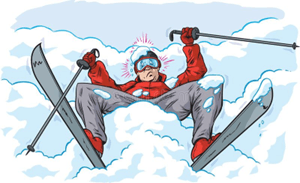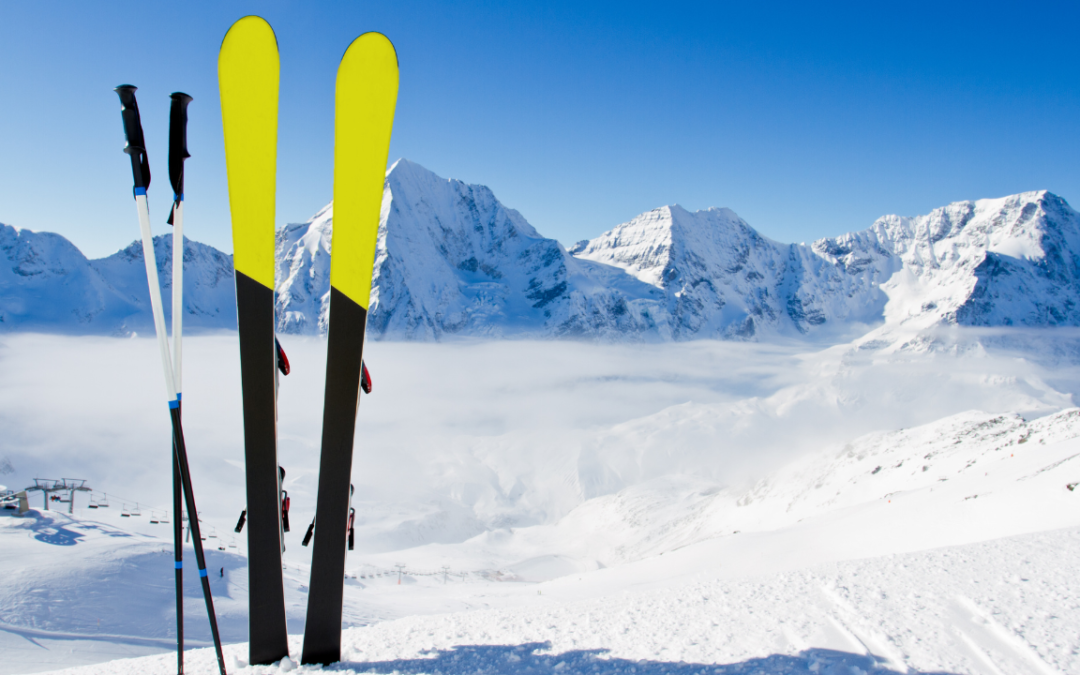The snow is flying on Mt. Hood and we have had our first power day! This month, I wanted to go over some common skiing injuries and how to prevent them, and what to do if you get them! I’ll start at your head and work my way towards your feet!
Concussion
There is a lot of new information out there on concussion. The #1 way to prevent it is to wear a helmet! This will help protect your noggin when you take a spill on ice or hurl yourself into a tree. Concussions do recover on their own! Most concussions run their course over a 7-10 day period. If concussion symptoms last longer than 14 days, it is a good idea to consult a Health Care Provider for management. Symptoms can include dizziness, fogginess, headache, sleep disturbance, difficulty concentrating, blurred or double vision, just to name a few.
Shoulder Sprain/Dislocation
This will happen mostly in falls or with pole planting. A way to prevent falling is to ride within your means and not have your last run be down A-zone at 3:30 if you have been riding all day. This may not be as fun, but you’ll be able to ski tomorrow.
Hand/Wrist Injury
Skier’s thumb or a broken wrist can occur. Pain on the inside of the thumb can happen during a lot of pole planting or using the poles to brake. This will strain ligaments in your thumb and potentially cause pain. Wrist fractures happen with falling. Bracing can be used to prevent excess strain to the thumb ligaments or to help pad your wrists during falling.
Knee Sprains
ACL/MCL/meniscus can all be culprits here with the force of turning and unexpected twisting of the legs. These injuries can be prevented with a good strength and conditioning program that includes balance and agility exercises. Also, if the mountain is throwing you around, it may be time to take a break! A proper tune on your gear can also keep it running smoothly. Testing out the release of your binding can also be a benefit here.

Skiing is a full-body sport and it requires training to be able to do it well. Keeping up with strength and conditioning training in the off-season can help prevent injury in season. Checking your gear for age and maintaining it properly can also prevent injury. If you find yourself injured, our Physical Therapists can quickly assess your injury and give you advice for free! If it requires more in-depth testing or analysis, we may need to sign you up for an Initial Evaluation to determine the root cause of your symptoms.
Happy Skiing!
Reference: https://lermagazine.com/cover_story/skiing-related-injuries

